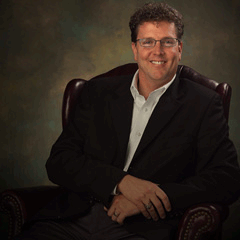Checklist for Your Purpose Statement

Very few have marked my life as Tim Elmore has, and I want to introduce you to something he lives and teaches really well - living up to your potential. Tim is the long-time right arm of John Maxwell. He's also the founder of Growing Leaders (http://growingleaders.com) which is becoming the go-to organization for leadership development among high school and college students, and those who work in that arena. On top of that, he's one of the best communicators I've ever heard in my life and a humble man of God.
Last week, I carved out two full/valuable days to think and prayer real hard for the third time in four years. Along the way I filled out Tim's "Checklist for Your Purpose Statement". The first year I took up a page...the second, four pages and this time it was over ten. This is one of the most productive things I've ever done!
I highly recommend you find a way to think deeply about the calling, wiring and dreams God has made you to do, write it out and never stop working on it. I don't plan to stop, ever! Enjoy...
The Checklist for Your Purpose Statement
Now we are ready for the exercise. The following list of ten items could be called: “Life Planning in Ten Steps.” It is designed for you to respond to during an extended block of solitude time. I suggest you carve out a D.A.W.G., (Day Alone With God), and take this lesson with you, along with your Bible, a notepad and a pencil. Fasten your seatbelts, and get ready to reflect and respond…
1. BURDENS
What needs tug most at your heart? What are the things that make you cry or make you angry or cause you to become passionate?
2. HALLMARKS
What are the major hallmarks that have made up your life? List significant books, people, accomplishments, and events that have shaped you into who you are today.
3. TOOLS & RESOURCES
What specific resources or tools do you have at your side that you could employ as you fulfill your mission? These could be possessions, people, computers, skills, etc.
4. DREAMS
What are some of your aspirations or ideas which could become a God-given, clarified vision in the future? What are the things you’d love to do or be?
6. MISSION
This is it. Begin to write out your mission statement which answers the question: Why do you exist? Why did God give you to the world? Write out the central purpose of your life in one to three sentences.
5. VISION
Based on your mission, describe in detail what you see as the ultimate results of your life as if you are seeing your contribution from the other end of your life. Start the statements with the words, “I see…”
6. GOALS & OBJECTIVES
Finally, list the areas in which you will need to stay involved on a regular basis, if you are to accomplish your mission. What will you need to do on Monday morning if your life purpose is to be accomplished? What immediate steps can you take?
NOTE: You may want to write your responses down on a pad of paper so you can have unlimited space. When you’re done, don’t just set it on the shelf or in a drawer. Contemplate what you have written, pray through it, and allow God to soak your heart in the purpose He has for you.

